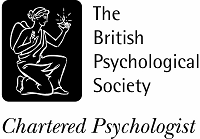Helen Bowen Ashwin
Bsc, PGCert, PGDip
I am a BABCP accredited cognitive behavioural therapist with over 15 years’ experience working in NHS mental health services, supporting adults facing a wide range of emotional challenges. Alongside CBT, I am trained in EMDR and Interpersonal Psychotherapy, which allows me to tailor therapy to each individual’s needs.
I am trained to work with a variety of emotional difficulties, including:
- Post traumatic stress disorder (PTSD)
- Anxiety and depression (including antenatal and postnatal)
- Birth trauma and tokophobia (severe fear of birth)
- Grief and loss
- Low self-esteem
- OCD
- Emotional difficulties linked to childhood adversity
- Impact of sexual or domestic abuse
For the past three years I have worked within NHS perinatal mental health services, supporting people during pregnancy and into the first year after birth. I have helped set up new services to support parents who have experienced birth trauma, fears relating to birth as well as those who have experience of pregnancy loss.
I am experienced in the assessment and treatment of adults with a wide range of psychological problems but my particular passion is working with post-traumatic stress disorder (PTSD) and trauma. Recently, I have helped to develop specialist services within maternity settings to support parents affected by birth trauma, fears around birth, and baby loss.
This work is rooted in deep compassion and an understanding of how profoundly these experiences can impact emotional wellbeing.
I believe meaningful change begins with feeling truly heard. I offer a safe, compassionate, and respectful space where we can work together to find the right approach for you.
EMDR
Eye Movement Desensitisation and Reprocessing (EMDR) is a structured form of psychotherapy that supports individuals in processing and recovering from traumatic or distressing experiences.
EMDR is recommended by the NICE guidelines as an effective treatment for Post-Traumatic Stress Disorder (PTSD). It can also be beneficial for individuals experiencing depression, anxiety, and other conditions where difficult or unresolved memories contribute to ongoing symptoms.
During EMDR, the therapist uses bilateral stimulation—often in the form of guided eye movements—to help the brain reprocess traumatic memories. This technique allows individuals to reduce the emotional intensity linked to those memories and approach them in a safe and contained way, with the support of their therapist.
Interpersonal therapy
Interpersonal therapy (IPT) is primarily used to treat depression and is recommended by NICE guidelines.
At its core, IPT is based on the understanding that relationships play a crucial role in managing mental health difficulties. The therapy helps individuals strengthen their support networks and develop healthier ways to cope with depressive symptoms.
IPT is particularly effective when depression is connected to one or more of four key areas: grief, major life transitions (such as divorce, parenthood, or retirement), conflict within a significant relationship, or recurring patterns of relationship difficulties.
 Sidebar Menu
Sidebar Menu



